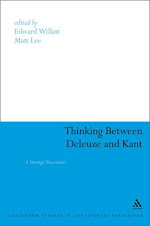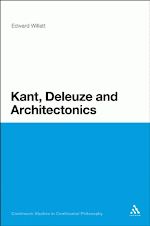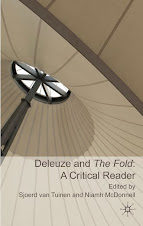Deleuze and the Genesis of Representation
Joe Hughes
ISBN-10: 1847062849
ISBN-13: 978-1847062840
Synopsis
Deleuze and the Genesis of Representation is a systematic study of three of Deleuze’s central works: Difference and Repetition, The Logic of Sense and, with Guattari, Anti-Oedipus. Hughes shows how each of these three works develops the Husserlian problem of genetic constitution. After an innovative reading of Husserl’s late work, Hughes turns to a detailed study of the conceptual structures of Deleuze’s three books. He demonstrates that each book is surprisingly similar in its structure and that all three function as nearly identical accounts of the genesis of representation.
In a highly original and crucial contribution to Deleuze Studies, this book offers a provocative perspective on many of the questions Deleuze’s work has raised: What is the status of representation? Of subjectivity? What is a body without organs? How is the virtual produced, and what exactly is its function within Deleuze’s thought as a whole? By contextualizing Deleuze’s thought within the radicalization of phenomenology, Hughes is able to suggest solutions to these questions that will be as controversial as they are compelling.
Table Of Contents
Part I: Husserl and Deleuze
1. Husserl, Reduction and Constitution
2. The Logic of Sense
Part II: Anti-Oedipus
3. The Material Reduction
4. Desiring-Production
5. Social Production
Part III: Difference and Repetition
Introduction
6. Static Genesis: Ideas and Intensity
7. Dynamic Genesis: The Production of Time
Conclusion
Bibliography
Index
Author
Joe Hughes received his PhD from the University of Edinburgh, UK. He is the author of Difference and Repetition: A Reader’s Guide (Continuum, 2009) and is the co-translator of Deleuze's Pericles and Verdi (Columbia University Press, 2002).
Reviews
'Deleuze and the Genesis of Representation is a superb analysis of the concept of genesis as developed by Deleuze in his three central works - Difference and Repetition, Logic of Sense, and Anti-Oedipus. It also includes one of the best discussions of Deleuze's relation to Husserl in any language. Essential reading for anyone interested in one of the central tenets of Deleuze's philosophy.'
- Daniel W. Smith, Purdue University, USA




